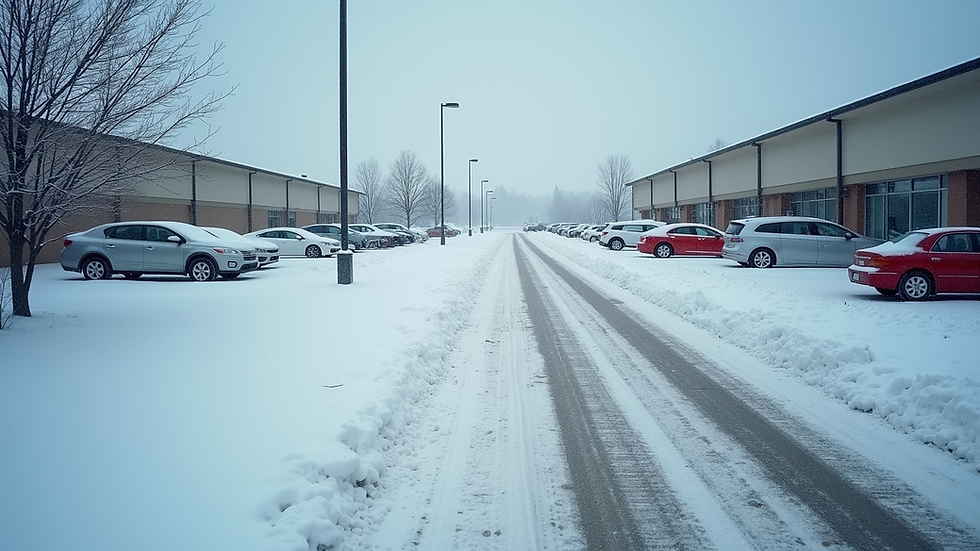Mastering Commercial Property Management Techniques
- dadams819
- Sep 2, 2025
- 4 min read
Managing commercial properties can feel like a big job. But with the right approach, it becomes manageable and even rewarding. I want to share some practical tips and strategies that help me keep commercial properties running smoothly. Whether you own a small office building or a large retail space, these ideas can make a difference.
Effective Property Management Strategies to Try Today
Good property management starts with clear planning. I always begin by setting goals for the property. These goals might include keeping tenants happy, maintaining the building’s condition, or maximizing rental income. Once I know what I want to achieve, I create a plan that covers daily tasks and long-term projects.
Here are some strategies I use regularly:
Regular Inspections: I schedule inspections to catch problems early. This helps avoid costly repairs later.
Tenant Communication: I keep open lines of communication with tenants. Quick responses to their concerns build trust.
Maintenance Scheduling: I create a calendar for routine maintenance like HVAC checks, landscaping, and cleaning.
Budget Management: I track expenses carefully to stay within budget and plan for unexpected costs.
Using these strategies helps me stay organized and proactive. It also improves tenant satisfaction, which is key to keeping occupancy rates high.

What are commercial property management jobs?
Understanding the specific jobs involved in managing commercial properties helps clarify what needs to be done. Here’s a breakdown of common tasks:
Tenant Relations: Handling lease agreements, rent collection, and addressing tenant issues.
Maintenance and Repairs: Coordinating repairs, preventive maintenance, and ensuring the property meets safety standards.
Financial Management: Budgeting, accounting, and reporting on property income and expenses.
Marketing and Leasing: Advertising available spaces and screening potential tenants.
Compliance: Ensuring the property follows local laws, zoning rules, and environmental regulations.
Each of these jobs requires attention to detail and good communication skills. I find that staying organized and using property management software can make these tasks easier.

How to Handle Seasonal Challenges in Property Management
Seasonal changes bring unique challenges to property management, especially in New England. Winter, for example, demands special attention to snow and ice removal. I rely on trusted partners for commercial property management services that include snow plowing and ice control. This keeps walkways safe and prevents damage to the property.
Spring and fall require landscaping and gutter cleaning to prepare for changing weather. Summer often means dealing with increased foot traffic and outdoor maintenance.
Here are some tips for seasonal success:
Winter: Arrange snow removal contracts early. Inspect heating systems before cold weather hits.
Spring: Schedule landscaping refreshes and check for winter damage.
Summer: Maintain cooling systems and manage outdoor spaces.
Fall: Clean gutters and prepare for leaf removal.
Planning ahead for these seasonal tasks saves time and money. It also keeps tenants comfortable and safe year-round.

Using Technology to Improve Property Management
Technology has transformed how I manage properties. Tools like property management software help me track leases, payments, and maintenance requests all in one place. This reduces paperwork and speeds up communication.
Some useful tech tools include:
Online Payment Systems: Tenants can pay rent easily and on time.
Maintenance Portals: Tenants submit repair requests online, and I can assign vendors quickly.
Automated Reminders: I get alerts for lease renewals, inspections, and bill payments.
Data Analytics: I analyze occupancy rates and expenses to make informed decisions.
Embracing technology makes property management more efficient. It also improves tenant satisfaction by providing quick responses and easy access to information.
Building Strong Relationships with Tenants and Vendors
At the heart of successful property management are good relationships. I focus on building trust with tenants by being responsive and respectful. When tenants feel valued, they are more likely to stay longer and take care of the property.
Similarly, I work closely with vendors and contractors. Reliable vendors ensure maintenance and repairs happen on time and meet quality standards. I keep a list of trusted professionals for landscaping, cleaning, plumbing, and electrical work.
Here are some ways to strengthen these relationships:
Regular Check-Ins: Touch base with tenants and vendors to address any concerns.
Clear Communication: Be transparent about policies, changes, and expectations.
Prompt Payments: Pay vendors on time to maintain good rapport.
Feedback: Ask tenants and vendors for feedback to improve services.
Strong relationships create a positive environment that benefits everyone involved.
Taking Your Property Management to the Next Level
Mastering property management strategies is an ongoing process. I keep learning and adapting to new challenges. Whether it’s adopting new technology, improving communication, or planning for seasonal changes, every step helps me provide better service.
If you want to improve your property management, start with small changes. Set clear goals, stay organized, and build strong relationships. Don’t hesitate to seek professional help when needed, especially for specialized tasks like snow and ice management.
By focusing on these areas, you can protect your investment and create a welcoming space for tenants. That’s the key to long-term success in managing commercial properties.
I hope these insights help you feel more confident in managing your commercial property. Remember, good management is about being proactive, organized, and responsive. With the right strategies, you can master the art of property management and enjoy the benefits it brings.




Comments